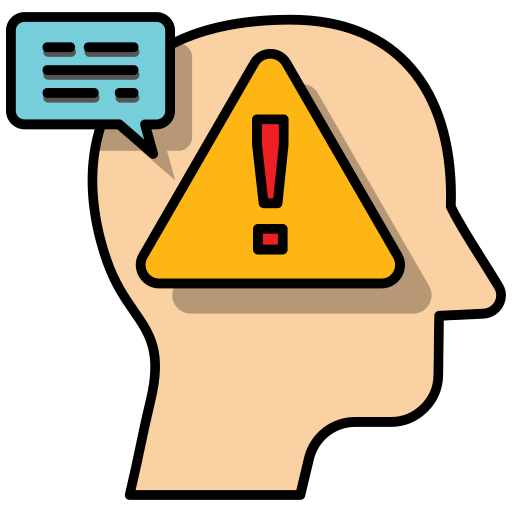 Photo by Afif Ramdhasuma on Unsplash
Photo by Afif Ramdhasuma on UnsplashHas anger ever damaged a relationship you cared about?
Anger is a natural emotion we all experience, but when it gets out of control, it can seriously harm your relationship with your partner.
If you find yourself struggling to manage anger in your relationship, you’re not alone.
Take back control with these three healthy approaches.
1. Identify Triggers
Understanding your triggers helps you notice which situations or thoughts typically spark your anger.

Keep an Anger Journal
Write down when, where, and why you got angry.
Look for patterns in people, places, or situations that regularly upset you.
Try this journal prompt: 📝
"Today, I felt angry when _____. What was happening? What did I feel in my body? Looking back, was I actually feeling something else underneath, like sadness, fear, or disappointment?"
For example: Fill in the blank with "my boyfriend cancelled our date and dinner suddenly without any prior notice."

Notice Physical Signs
Pay attention to early body cues like a racing heart, clenched fists, or tense muscles.
These signals often show up before your anger escalates.
For example: There's a tightness in my chest when I breathe.

Identify Underlying Thoughts or Emotions
Ask yourself: “What was I really feeling: hurt, ignored, disrespected, or something else?”
Angry reactions often mask deeper emotions or unmet needs.
For example: I feel upset, disappointed, and a bit angry for this last-minute cancellation.
2. Develop Coping Mechanisms
Discovering positive techniques and building healthy coping skills can help you manage anger effectively.

Physical Exercise
Engage in physical activities such as walking, jogging, swimming, or yoga. Exercise releases endorphins that improve mood and reduce stress.
Benefit: Regular exercise helps lower overall anger levels and increases emotional resilience.

Deep Breathing
Practice deep breathing exercises like the 4-7-8 method or diaphragmatic breathing to calm your anger system.
Benefit: Deep breathing quickly reduces physical tension and helps you think more clearly during stressful moments.

Experiment
Try different strategies to find what works best for you.
Benefit: Personalizing your coping methods increases the chances of long-term success in managing anger effectively.

Setting Boundaries
Establish healthy boundaries to protect your time and energy. For example, let your partner know that while you care about them, you need some alone time after work to decompress. You might say:
"I really want to spend time with you, but I need 30 minutes alone after I get home to recharge. Let’s hang out after that?"
Benefit: Clear boundaries reduce frustration, prevent resentment, and help you respond to situations calmly instead of reacting with anger.
3. Use Communication Strategies
If you find it challenging to handle your anger by self-regulation, using practical communication techniques can ease tension and strengthen relationships during moments of anger.
 Photo by Priscilla Du Preez 🇨🇦 on Unsplash
Photo by Priscilla Du Preez 🇨🇦 on UnsplashTake Time to Cool Off
Agree with your partner to take a short break during heated moments, such as a 10-minute walk or deep breaths, to calm down and think clearly before continuing the discussion.
Communicate Effectively
Use "I" statements: Express your feelings and needs using "I" statements to avoid blame and defensiveness.
Practice active listening: Make eye contact, nod, and paraphrase your partner's words to show you are engaged and understanding.
Avoid interrupting: Give your partner space to speak and express themselves without interruption.
Ask clarifying questions: Seek to understand your partner's perspective and avoid making assumptions.
Talk to a Professional
If anger becomes intense or frequent, seek help from a mental health professional who can provide strategies like therapy or anger management to support you and improve your relationship.
If you're looking for support, Mental Health and Wellness Canada is a safe place to start.
If you're in the U.S., you can also reach out to the National Mental Health Hotline or free and confidential 24/7 assistance.
Managing Anger in the Moment: Alex & Jamie
Scenario:
Alex and Jamie are in the middle of a conversation about their weekend plans. Jamie says, “You always forget the things that matter to me. It’s like you don’t even listen.”
Alex feels a wave of anger rising — heart racing, face heating up. Alex wants to respond in a way that protects the relationship and expresses feelings clearly, without letting anger take control.

If you were Alex, what would be the most helpful response in this moment?
A. "You never appreciate anything I do! Maybe you’re the one who doesn’t listen."
B. Say nothing, cross your arms, and walk out of the room.
C. Take a deep breath, pause, and say: “I feel hurt when it seems like my efforts aren’t noticed. Can we talk about what matters most to you?”
D. Hold in the anger but keep thinking about how unfair Jamie is, then vent to a friend later.
Quiz
What is the most helpful response for Alex?
Take Action
If you relate to Alex’s situation above, try practicing one new coping strategy this week, like walking away to take a deep breath or journaling your feelings after a tough conversation.

You might be starting from zero, but small steps can lead to big change. You're taking steps toward healthier communication.
Here are some extra tips and tools to help you manage anger more effectively:
Your feedback matters to us.
This Byte helped me better understand the topic.
